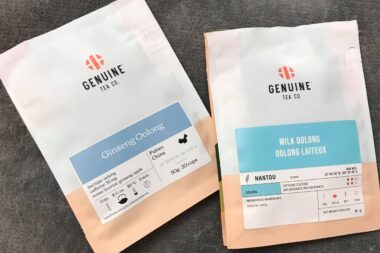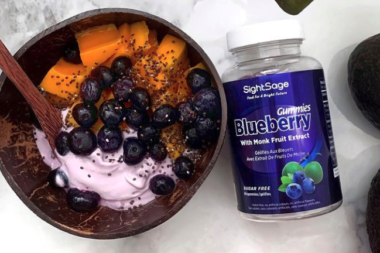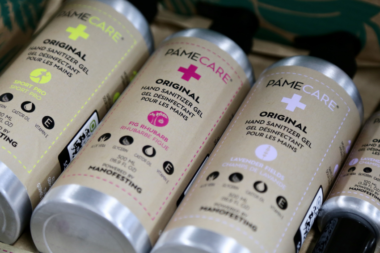1. What is the Calcium Paradox?
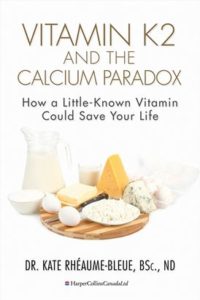 Calcium is a double edge sword. We need it in the body, but it has to be in the right places. Specifically, we want calcium in our bones and teeth but not in soft tissues like arteries. When calcium builds up in unwanted areas it can be dangerous and even deadly. Examples of unwanted calcium accumulation include heel spurs, kidney stones, breast tissue calcification and hardening of the arteries, or atherosclerosis.
Calcium is a double edge sword. We need it in the body, but it has to be in the right places. Specifically, we want calcium in our bones and teeth but not in soft tissues like arteries. When calcium builds up in unwanted areas it can be dangerous and even deadly. Examples of unwanted calcium accumulation include heel spurs, kidney stones, breast tissue calcification and hardening of the arteries, or atherosclerosis.
One perplexing aspect of the calcium paradox is that we can have calcium building up in arteries at the same time it is being leeched from our bones. Rather than throwing more calcium at the bones – in the form of calcium supplements – it’s smarter to understand how the body keeps calcium where it will do the most good.
2. What does Vitamin K2 do in the body?
The body does have a system to keep calcium in its place, but it requires a couple of nutrients to work optimally. The most important of these is vitamin K2. Vitamin K2 is fat soluble vitamin that cooperates with vitamins A and D to manage calcium in the body. Vitamin K2 activates a set of proteins that will deliver calcium into bones and teeth and scavenge it from arteries and other soft tissues. Magnesium is another nutrient that is key in keeping calcium in its place.
Because of vitamin K2’s effect on calcium it is very important for bone health is adults and children, as well as cardiovascular health. K2 also appears to play a role in cancer prevention, oral and dental health, male fertility and healthy pregnancy.
3. Where do we get K2 from? And how can one differentiate between the different K2 supplements?
Vitamin K2 is found in two main types of foods. Animal foods, such as egg yolks and butter can be a rich source of vitamin K2 but only if the animal has been raised on the pasture eating green grass. Conventionally raised, grain-fed animals foods are low in K2. Another source of vitamin K2 is certain types of fermented foods. Special strains of bacteria will produce vitamin K2, so some cheeses, including Brie, Gouda and Jarlsberg, are good sources of K2. The Japanese fermented soybean food natto is also very high.
K2 is also available in supplements. When shopping for supplements I usually suggest looking for the designation MK-7 (or menaquinone 7) somewhere on the label. This form of K2 is useful in a relatively low, single daily dose. Another form of K2 on the market, MK-4, is also backed by research however it needs to be taken in doses beyond what Health Canada permits in a supplement.
4. One of your lectures at the Whole Life Expo was to lower one’s biological age, could you please elaborate on this for our readers?
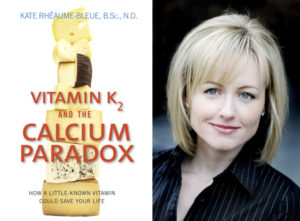 When talk about our age we are usually referring to our chronological age. Chronological age is the difference between the date we were born and today’s date. Without a time machine, there’s obviously nothing we can do to change that. Biological age, however, is determined at the cellular level and can be higher (older) or lower (younger) that your chronological age. Biological age is a measure of how soon or how late we will develop age related conditions, like heart disease and dementia.
When talk about our age we are usually referring to our chronological age. Chronological age is the difference between the date we were born and today’s date. Without a time machine, there’s obviously nothing we can do to change that. Biological age, however, is determined at the cellular level and can be higher (older) or lower (younger) that your chronological age. Biological age is a measure of how soon or how late we will develop age related conditions, like heart disease and dementia.
Biological age can be measured in a number of ways. One of the most useful is by measuring the length of the tips of your chromosomes, called telomeres. Having short telomeres means you are biologically older. The very good news is that even if you have short telomeres today, you can do things to make them longer through diet, exercise and lifestyle – even mindset. So, by taking steps to lengthen your telomeres you can, in a biological sense, actually get younger his year!
5. If someone really does not know where to start, what steps can you give them to follow for lowering one’s biological age?
The simple basics that we know are beneficial for health in general also usually lower biological age. Engaging in regular physical exercise is important. Ensuring optimal intake of dietary fiber will also slow aging. A healthy intake of omega-3 essential fatty acids also helps – you can achieve this by eating fish and taking a good quality fish oil supplement. Getting adequate sleep and managing stress also help slow aging. Even mindset can affect your health down to the cellular level. Studies show that people who perceive their stress as a challenge age better than those who think of their stress as a threat.
Kate Rhéaume, ND, is the author of the best-selling book Vitamin K2 and the Calcium Paradox: How A Little Known Vitamin Could Save Your Life (HarperCollins).




